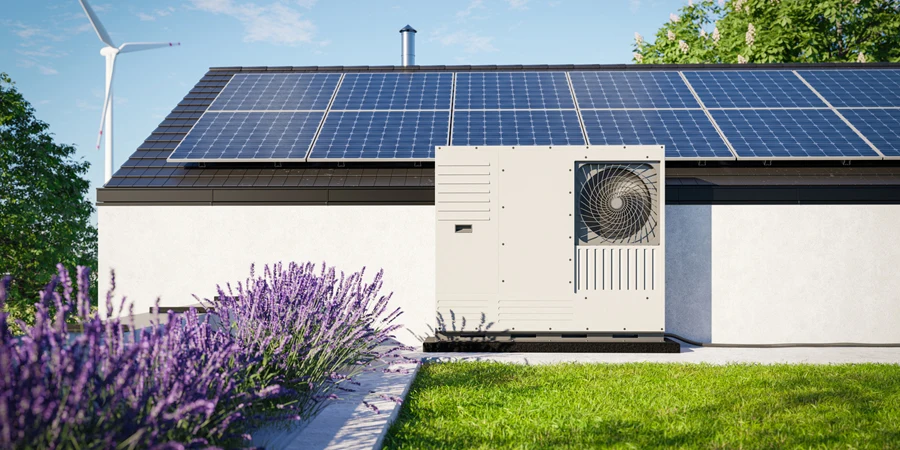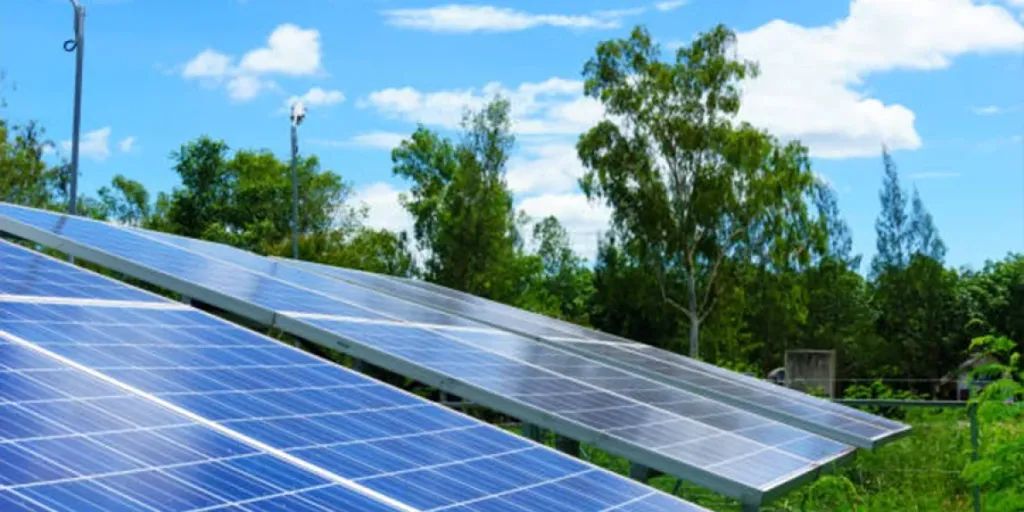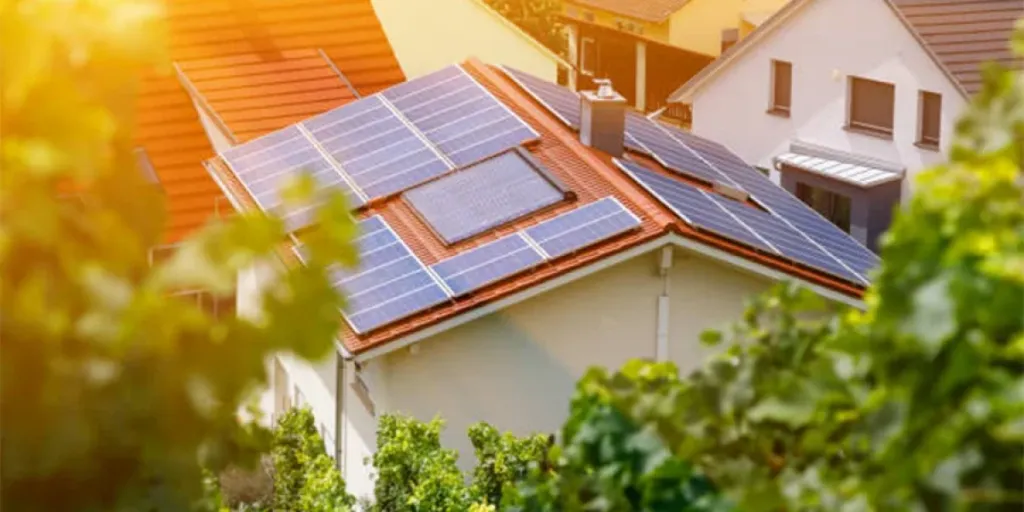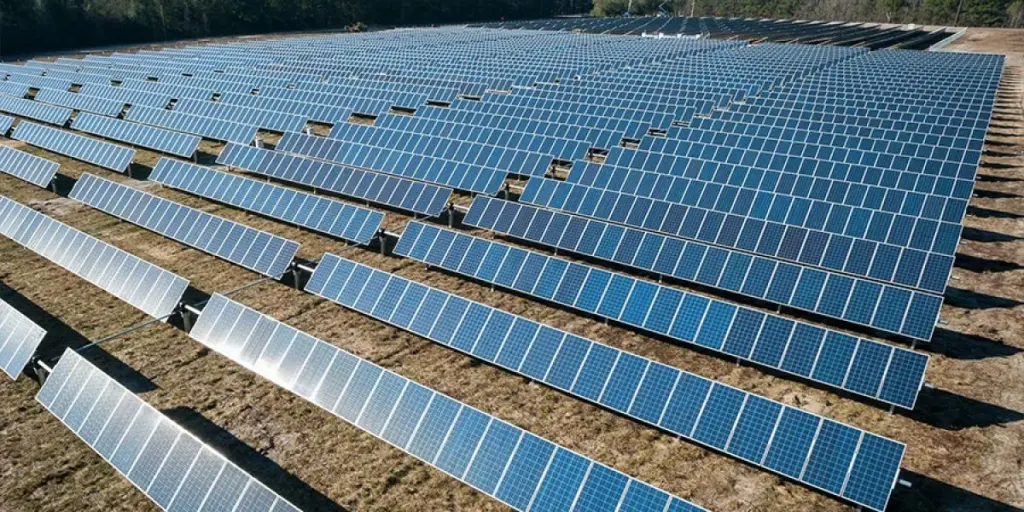Researchers at Germany’s Frauhofer ISE have analyzed the performance of a residential heat pump connected to a rooftop PV system relying on battery storage and have found that this combination significantly improves the performance of the heat pump while also increasing considerably the solar array’s self-consumption rate.
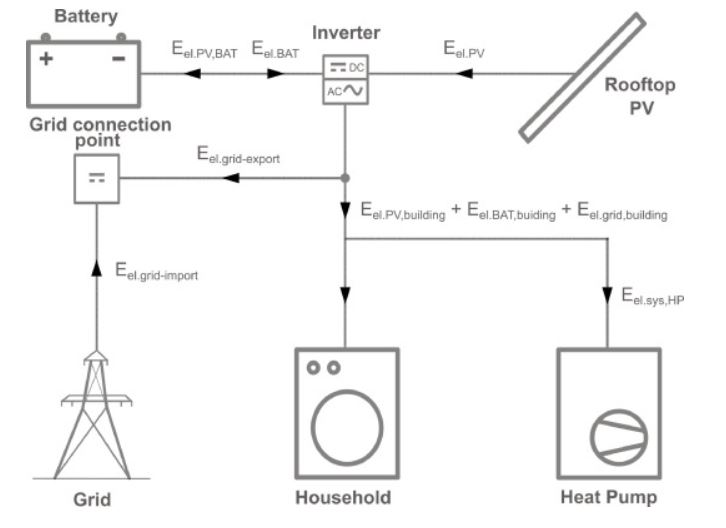
A group of researchers at Germany’s Fraunhofer Institute for Solar Energy Systems (Fraunhofer ISE) investigated the performance of smart grid-ready heat pumps (HPs) combined with rooftop solar power generation and battery storage in single-family houses and found that both PV arrays and batteries can significantly improve the performance of the heat pumps.
Smart grid-ready HPs can be switched off by the grid operator during high grid load periods. They also offer the advantage of maximizing PV self-consumption by adjusting their operation based on available solar power.
“The smart grid-ready mode is activated when the battery is fully charged or is charging at its maximum power and there is still PV surplus available,” the scientists said, noting that smart grid-ready HPs can adjust their operation in a grid-oriented way. “Conversely, the trigger-off condition is met when the instantaneous PV power remains lower than the total building demand for at least 10 min.”
The academics analyzed, in particular, the performance of a PV-HP system using 1-minute resolution field data from a semi-detached, single-family house built in 1960 in Freiburg, southern Germany. The house has an annual heating demand of 84.3 kWh/m²a and a heated living space of 256 m2.
Their analysis considered how the smart control utilized in the solar-plus-storage system may affect the performance of the heat pump. They took into account key performance indicators (KPIs) such as self-consumption rate, solar fraction, seasonal performance factor, and heating curve. “It can be useful to evaluate the performance of the heat pump for only the electricity consumed from the grid,” they explained. “This approach is grounded in the assumption that electricity generated by domestic PV and battery units is effectively cost-free for homeowners.”
The proposed system configuration includes a 13.9 kW ground source heat pump intended for space heating and domestic hot water (DHW), a south-oriented 12.3 kW PV system with a tilt angle of 30 degrees, a 12 kW inverter, and a DC-coupled battery with a capacity of 11.7 kWh.
The analysis showed that the PV-HP system was able to achieve an average self-consumption rate of 42.9% over the course of the year, with the highest peaks being reached in winter. “In contrast, high surplus PV leads to lower self-consumption in summer, typically during the peak sunlight hours,” the research team explained. “Larger battery capacity would help to maximize the self-consumption; however, this also implies that most of the battery capacity would be left unused during the winter months with limited PV surplus power.”
The scientists also found that the solar-plus-storage system was able to cover around 36% of the heat pump’s electricity demand. “Due to higher sink temperatures, the HP´s efficiency decreases by 5.7 % in DHW mode and by 4.0 % in space heating mode,” they also specified. “Results showed that by considering the PV electricity supplied to the heat pump, the seasonal performance factor increased from 4.2 to 5.2. When the combined supply from PV and battery to the heat pump was considered, the seasonal performance factor increased to 6.7.”
They also noted, however, that the smart control may negatively affect the heat pump efficiency due to increased supply temperatures. “Long-term evaluation at the system level, by considering the effect of storage losses and considering the economic performance can better assess the effect of smart control on the system,” they concluded.
Their findings are available in the study “Analysis of the performance and operation of a photovoltaic-battery heat pump system based on field measurement data,” published in Solar Energy Advances.
This content is protected by copyright and may not be reused. If you want to cooperate with us and would like to reuse some of our content, please contact: editors@pv-magazine.com.
Source from pv magazine
Disclaimer: The information set forth above is provided by pv-magazine.com independently of Alibaba.com. Alibaba.com makes no representation and warranties as to the quality and reliability of the seller and products.
